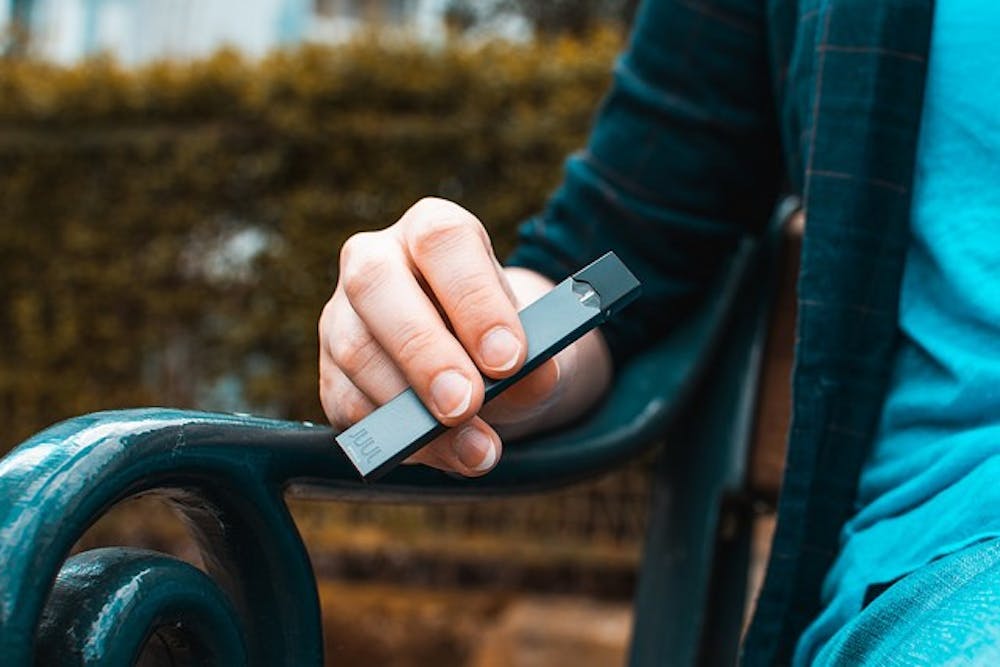“Juuling” for American University students has become a typical part of college life, with vape pens appearing everywhere on campus from the Mary Graydon Center to restrooms and classrooms.
Juuls are small, discreet e-cigarette vapes that resemble flash drives and can have little to no scent or fruity and minty flavors. They can be charged in a USB port of most laptops and portable chargers. Juuls, unlike cigarettes, are easier to hide and according to AU students, more socially accepted by young people.
“I don't Juul, but there are always kids in my classes just charging their Juuls,” said Sarah Gruesser, a sophomore.
Noah Sanger, a junior, said he began smoking Juul his senior year of high school. Sanger now smokes around a pod a day, which has about the same nicotine content as a pack of cigarettes.
Sanger had never smoked a cigarette before Juuling. Instead, he began smoking cigarettes on occasion while studying abroad in addition to using his e-cigarette every day. Sanger said he spends about $20 every four days on his Juuling habit.
“No one’s like pushing Juul on me, but also no one’s trying to stop me from doing it,” Sanger said. “If I was on cigarettes, people would actually give me looks, but when I use Juul, it's like ‘oh he's just Juuling, whatever.’”
Some stigma still appears to be attached to Juuling, as several students approached about using Juuls declined to be interviewed on the record about their use of the product.
Juul sales are boosting the e-cigarette market, with the market expanding by 40 percent in 2017 to become worth about $1.16 billion.
While D.C.’s tobacco recently implemented a law that prohibits the purchase of tobacco products by people under the age of 21 in addition to a high tax on tobacco products, Juul users at AU say it’s not difficult to get. Juul pods can be purchased online or bought by older friends.
The company promotes itself as a way for adult smokers to reduce their cigarette or eliminate their cigarette consumption. However, some AU students who juul say they had not consumed nicotine before picking it up.
AU is considered a tobacco and smoke-free campus, according to its initiative website as well as signs around campus. However, according to students, there seems to be little to no consequences for juuling.
Hannah Camp is a senior at AU who studies public health and women gender and sexuality studies. Camp is also a Peer Health Educator at the Health Promotion and Advocacy Center.
“We’re technically supposed to be smoke and vape-free but people don’t care,” Camp said. “I saw someone the other day Juuling in the library.”
While AU links to some resources outside of AU on the tobacco-free section of the University’s website, nicotine is not mentioned in the alcohol and drugs section of the Health Promotion and Advocacy Center’s peer education website.
Yoo-Jin Kang, the coordinator for alcohol and other drugs at HPAC, is the main point of contact for addiction issues and can direct students in need to resources.
Camp said that nicotine came up in her training at HPAC but often they talk about harder drugs, which they consider to be a more pressing issue. She thinks based off of her public health classes and experience that prevention and education are always the best efforts.
“If you’re doing it, at least know what you’re doing,” Camp said. “People are always going to do unhealthy things but that knowledge is 80 percent of the battle.”





